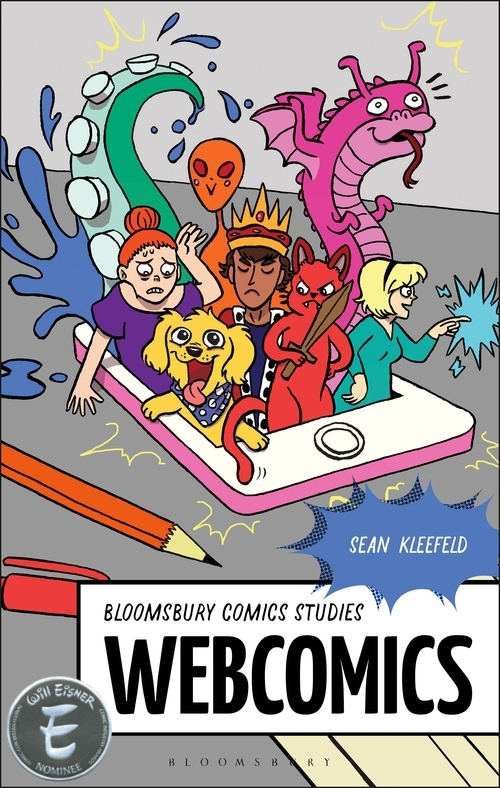Tom Feelings is probably best known as a children's book illustrator. He was the first Black recipient of the Caldecott Honor Medal in 1972 for Moja Means One, and he won the award again in 1974 for Jambo Means Hello. He's also won awards for some of his other books, like To Be a Slave and The Middle Passage.
Less well-known, though, is that he has some solid comic credentials as well. In fact, one of his first works after leaving the Air Force was a weekly comic strip called Tommy Traveler in The World of Black History, debuting in 1958. The story is that the title character is a boy who's already read all of the books on Black history in his local library, and the librarian directs him to Dr. Gray, who has a more substantial private collection. Tommy, in perusing the books, magazines, and newspaper clippings in Gray's collection, imagines himself back in time meeting the people and experiencing the events he's reading about: Pheoebe Fraunces, Frederick Douglass, Crispus Attucks, Aesop, Joe Louis, and Emmett Till! The series only ran for a year in New York Age but it was collected in book form and colored in 1991.
The individual stories are relatively short -- they were formatted for a weekly newspaper strip, after all -- so they didn't get into too much detail, but they do provide some useful overviews for histories that are frequently glossed over, or altogether ignored. I'm certainly no expert, but this is the only place I've seen biographies of Fraunces or Till in comic form!
Interestingly, about a decade after these came out, Feelings met Bertram Fitzgerald. It seems a little unclear if this meeting was an inspiration for Fitzgerald, or Fitzgerald sought Feelings out after already having the idea, but soon afterwards, Fitzgerald began publishing his Golden Legacy comic book series. He even hired Feelings to do the art for the Harriet Tubman and Crispus Attucks stories!
John Lewis credits the 1958 Martin Luther King and the Montgomery Story comic as having a profound effect on him, that helped direct him into the Civil Rights movement, Congress, and eventually the March books. That Montgomery Story came out the same year as Tommy Traveler, I think, is quite interesting and speaks to how the Black community was using comics in both an educational and community-building manner. There's probably a lot to be said about this topic and I, for one, would be interested to find out what other Black comics were promoting a sense of cultural identity like this. Tommy Traveler, at least, were collected in 1991 as I said, and it's definitely worth trying to track down a copy.
(Special shout-out to Qiana Whitted who alerted me to Tommy Traveler in the first place and that it had been collected in book form!)
Now Available!
Blog Archive
-
▼
2017
(304)
-
▼
March
(26)
- On Strips: Organizing Collections
- On -isms: Tommy Traveler
- Weekly Comics Links
- On History: The Origin of Jughead's Hat
- On Business: Earnings
- Weekly Recap
- On -isms: Steamboat
- Weekly Comics Links
- On History: Kirby's Pencil
- On Business: Multi-Purpose Con Marketing Idea
- Weekly Recap
- On Strips: Gladys Parker Fashions
- On -isms: Future Representation
- Weekly Comics Links
- On History: Marvel's Original Event Comics
- On Business: Transition
- Weekly Recap
- On Strips: The First Crossover?
- On -isms: Pini or Telgemeier?
- Links
- On History: Remember Those Old Comics?
- On Business: Ditko's Income
- Weekly Recap
- On Strips: Andy Capp Talcum Powder?
- On -isms: A Small, But Significant Step
- Weekly Comics Links
-
▼
March
(26)







0 comments:
Post a Comment